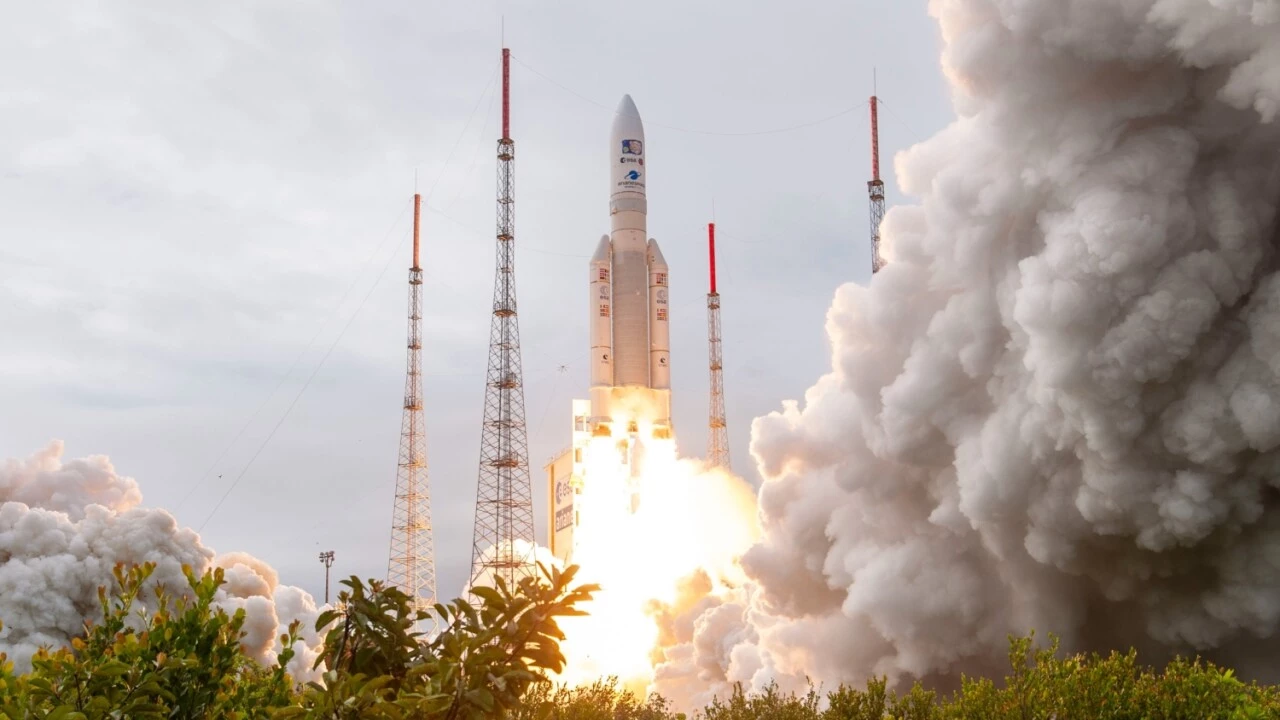
Juice
A European spacecraft launched Friday on a ten-year mission to investigate Jupiter and three of its frozen moons, which may have once been home to oceans.
The journey started with an early-morning launch from French Guiana in South America by Europe’s Ariane rocket.
Stephane Israel, CEO of Arianespace, described it as “an absolutely perfect launch”.
However, after almost an hour into the trip, there were a few nervous minutes while controllers awaited indications from the spacecraft.
Bruno Sousa of the European Space Agency announced from Mission Control in Germany after contact was made: “The spacecraft is alive!”
The Juice robotic explorer will take eight years to reach Jupiter, where it will examine not only the solar system’s largest planet, but also Europa, Callisto, and Ganymede. The three ice-encrusted moons are thought to have subsurface oceans with aquatic life.
Then, probably most impressively, Juice will attempt to enter orbit around Ganymede: No other moon has ever been orbited by a spacecraft other than our own.
With 95 moons, astronomers consider Jupiter to be a tiny solar system in its own right, with missions like Juice long overdue.
“We are not going to detect life with Juice”, said Olivier Witasse, project scientist at the European Space Agency.
“However, learning more about the moons and their potential seas will bring scientists closer to addressing the question, Is there life elsewhere? That will be the most intriguing aspect of the mission”, he added.
The juice will travel 4 billion miles (6.6 billion km) to Jupiter in a circuitous journey.
Scientists looking for indications of life beyond Earth are particularly interested in Europa. Due to the severe radiation so close to Jupiter, Juice will keep its Europa interactions to a minimum.

















